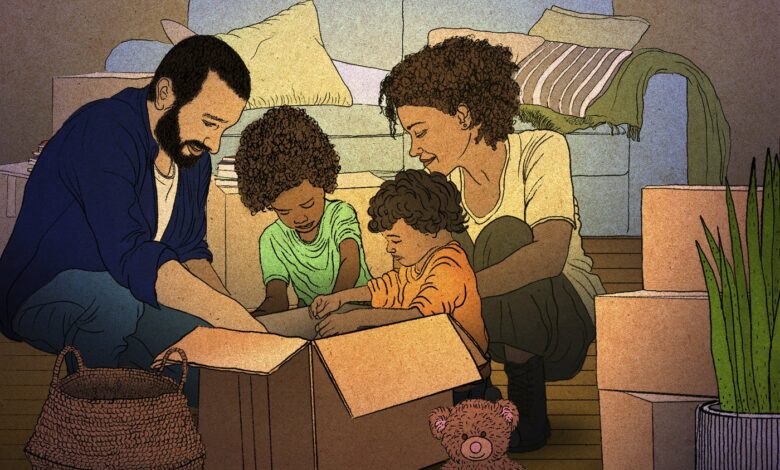Moving to a new home or school can stress kids out. How to make it more manageable

Tips for Helping Kids Navigate Big Transitions
As summer approaches, many kids face big transitions that can bring worry and stress. Whether it’s moving to a new home or preparing for a different school, these changes can be challenging for young ones. However, parents and families can play a crucial role in helping kids feel supported and confident during these times of change.
Recognizing the Challenges
According to Victoria Kress, a professional counselor, sudden changes in routines and familiar surroundings can be stressful for children. However, she also notes that these transitions can offer exciting opportunities for growth.
Author Nadine Haruni’s book, “Freeda the Frog is on the Move,” addresses the challenges of moving for school-age kids. Haruni, who experienced multiple changes in her own family, emphasizes the importance of acknowledging that transitions take time and that it’s normal to feel a mix of emotions during these periods.
Strategies for Easing the Transition
Haruni offers some tips for parents to reduce the stress of a move or other significant changes for kids:
Talk it out
Communication is key in alleviating anxiety. Haruni suggests allowing children to express their feelings and concerns, helping them feel heard and valued. Explaining the reasons behind a move and discussing the destination can also help children feel more confident and prepared.
Involve kids in the process
Engaging children in age-appropriate tasks related to the move, such as packing their belongings or choosing room decorations, can give them a sense of control and security. Involving them in planning meals, organizing their space, and maintaining family traditions can make the transition feel like an adventure.
Maintain routines
Keeping some daily routines consistent can provide structure and stability during times of change. Kapalka suggests sticking to regular meal times and bedtime rituals to help children feel more grounded. Arranging common areas in a familiar way and placing favorite items where they expect to find them can also create a sense of comfort.
Seek professional help if needed
While some adjustment difficulties are normal, persistent symptoms or disruptions in daily life may warrant professional counseling. Kress advises parents to be aware of when to seek help and to reassure children that it’s okay to ask for support during challenging times.
By following these strategies and providing support, parents can help their children navigate big transitions with confidence and resilience.
Written by Katherine Roth, The Associated Press




